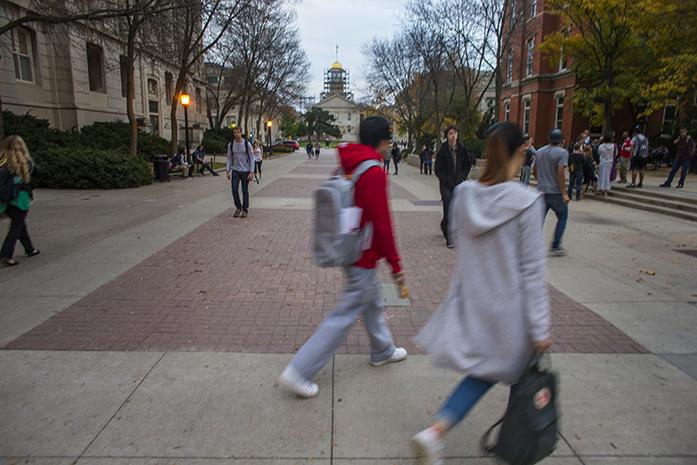University of Iowa workers happy with jobs
An annual survey showed that UI employees are generally pleased with their jobs.
January 26, 2017
The results of the 2016 Working at Iowa survey revealed that the members of the University of Iowa workforce are, overall, content with their jobs.
This is despite significant changes affecting the workplace ranging from the selection of a new UI president to proposed budget cuts by the Iowa Legislature.
Teresa Kulper, the UI Human Resources director of organizational effectiveness, discussed the survey results at Tuesday’s Faculty Council meeting, highlighting trends that have developed in the survey’s 10th year.
Data from her presentation showed 60 percent of the UI’s 17,831 employees — including faculty, professional and scientific staff, and merit employees — responded to the survey, a lower participation rate than in years past, she said.
Although participation declined, Kulper was more optimistic about the findings in the survey. For example, 92 percent of UI employees would recommend working at the university to a friend.
The most significant change has been a 13 percentage point increase in the number of employees who reported conflicts were managed constructively for a total of 77 percent.
Professor Russell Ganim, the director of the Division of World Languages and a member of the Faculty Council, said faculty members have told him some of the questions don’t relate to them. He noted in particular the ambiguity of questions regarding supervisors.
“Because some of these questions don’t change much year to year, faculty don’t really connect with the survey in the way the university might want,” he said.
History Professor Katherine Tachau, a member of the Faculty Council, expressed concern that employees in different colleges might not be as satisfied with their jobs at the UI as other colleges, meaning the reported level of satisfaction might not be accurate for every college.
“I’m alarmed by the fact that my college, which teaches something like 90 percent of the students at some point or other, has a high portion of people say they would not recommend this place to somebody as a teaching job,” she said. “It’s probably connected with all sorts of factors, like what’s going on in the Legislature, presidential search, and so forth.”
Faculty members discussed their desire for access to summaries of the data more catered to their needs, which they said differ from the UI administration’s and Human Resources’ goal to assess employee engagement. Psychology Professor Ed Wasserman said more faculty insight into the survey and its results would be useful for faculty members to see for themselves to determine how to boost morale.
“I know we’ve done surveys that have never seen the light of day, largely because the results were unflattering to the university,” he said. “If it were the case that everyone saw the merit to our group because we represent all the colleges seeing the nature of satisfaction across the board, we’d be in a much better position to target how it is that we’re going to improve morale.”
While Kulper highlighted areas of success, she noted the UI was using the results as a tool for improvement. Possible actions the UI will take to improve the work climate include working with shared-governance groups to launch an online recognition tool and expanding on Iowa Now to share success stories, among other ideas.



